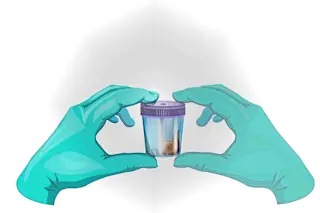In 2008, gastroenterologist Colleen Kelly had a patient with a recurring and debilitating infection of the gut with a microbe called Clostridioides difficile. Nothing Kelly did could ease the woman’s severe abdominal cramping and diarrhea.
So Kelly — at her patient’s urging — decided to try something highly experimental: transplanting a fecal sample from a healthy donor into the large intestine. And it worked.
Kelly, of Brown University School of Medicine in Providence, Rhode Island, is now one of the leading doctors performing the procedure. She has done about 300 fecal transplants in the last decade, with good success — and has even, she says, seen ICU patients with the most severe form of the infection sit up and ask for food within a day of their transplant.
Today’s data show that fecal transplants cure 80 percent to 90 percent of patients with recurrent C. diff infections — and doctors ...














